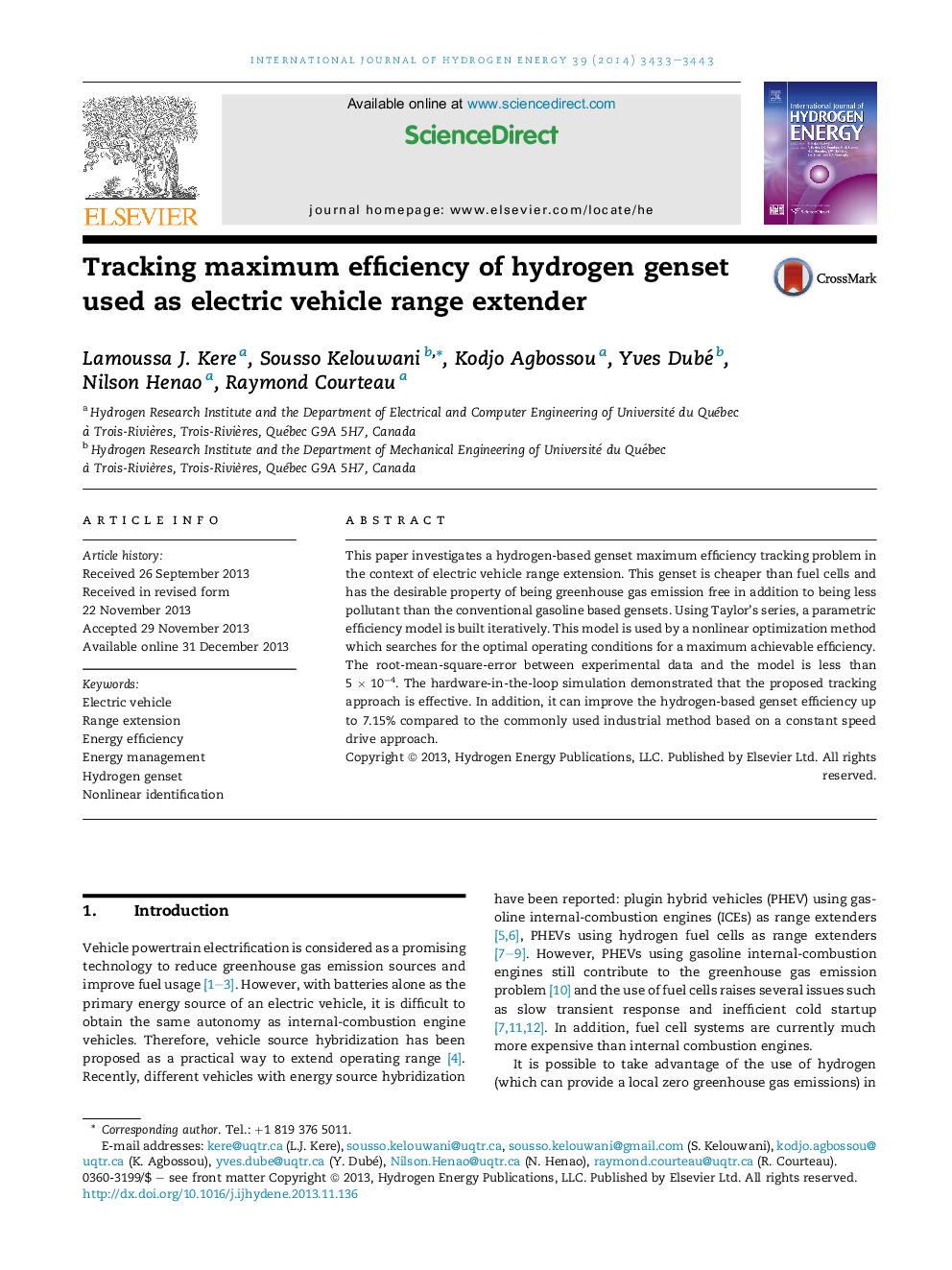| Article ID | Journal | Published Year | Pages | File Type |
|---|---|---|---|---|
| 1270648 | International Journal of Hydrogen Energy | 2014 | 11 Pages |
•A method that builds iteratively a hydrogen-based genset model.•A hydrogen-based genset maximum efficiency tracking with an adaptive method.•Evidence which demonstrates that adaptive method can improve a genset efficiency.
This paper investigates a hydrogen-based genset maximum efficiency tracking problem in the context of electric vehicle range extension. This genset is cheaper than fuel cells and has the desirable property of being greenhouse gas emission free in addition to being less pollutant than the conventional gasoline based gensets. Using Taylor's series, a parametric efficiency model is built iteratively. This model is used by a nonlinear optimization method which searches for the optimal operating conditions for a maximum achievable efficiency. The root-mean-square-error between experimental data and the model is less than 5 × 10−4. The hardware-in-the-loop simulation demonstrated that the proposed tracking approach is effective. In addition, it can improve the hydrogen-based genset efficiency up to 7.15% compared to the commonly used industrial method based on a constant speed drive approach.
